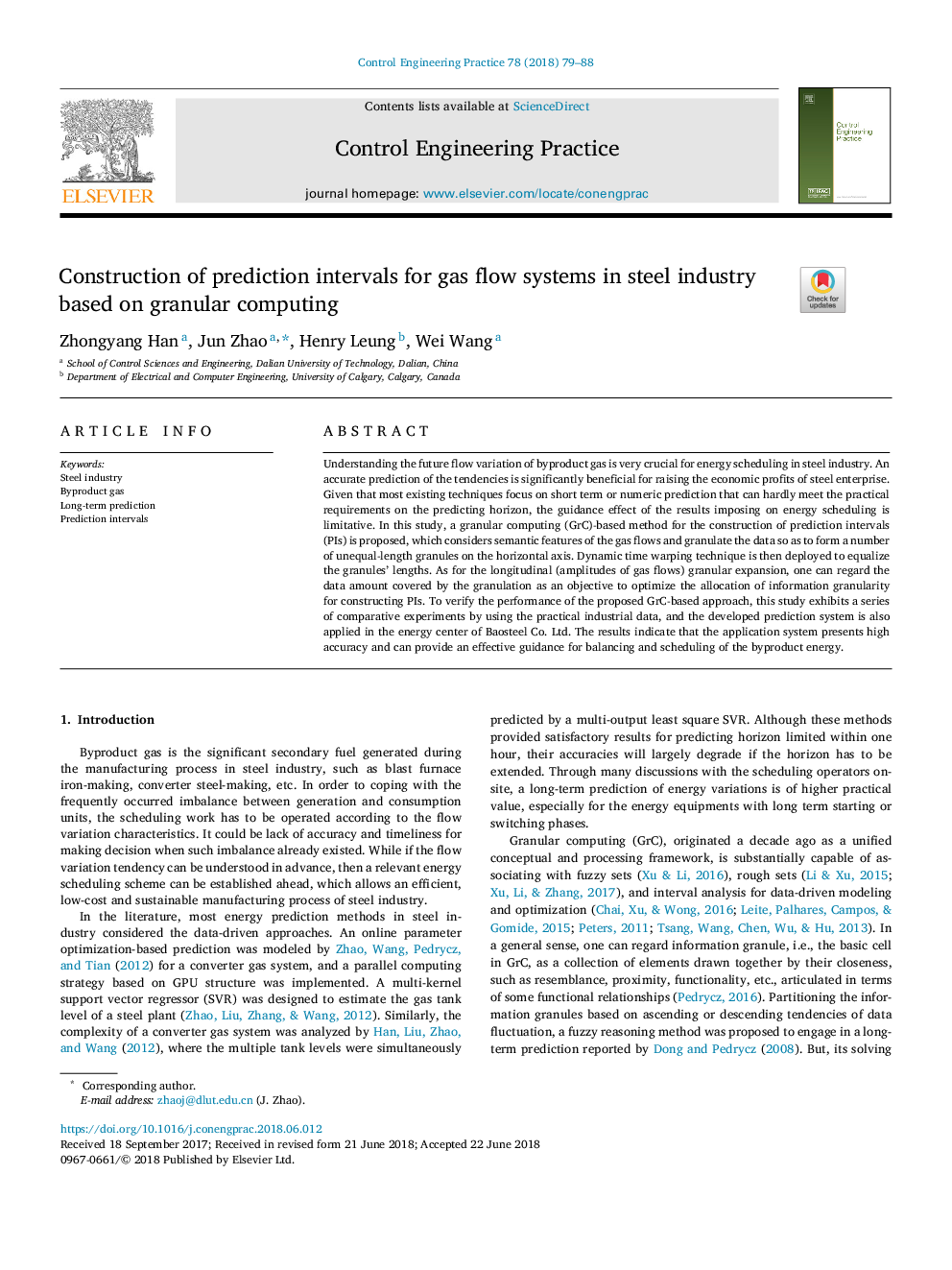| Article ID | Journal | Published Year | Pages | File Type |
|---|---|---|---|---|
| 7110199 | Control Engineering Practice | 2018 | 10 Pages |
Abstract
Understanding the future flow variation of byproduct gas is very crucial for energy scheduling in steel industry. An accurate prediction of the tendencies is significantly beneficial for raising the economic profits of steel enterprise. Given that most existing techniques focus on short term or numeric prediction that can hardly meet the practical requirements on the predicting horizon, the guidance effect of the results imposing on energy scheduling is limitative. In this study, a granular computing (GrC)-based method for the construction of prediction intervals (PIs) is proposed, which considers semantic features of the gas flows and granulate the data so as to form a number of unequal-length granules on the horizontal axis. Dynamic time warping technique is then deployed to equalize the granules' lengths. As for the longitudinal (amplitudes of gas flows) granular expansion, one can regard the data amount covered by the granulation as an objective to optimize the allocation of information granularity for constructing PIs. To verify the performance of the proposed GrC-based approach, this study exhibits a series of comparative experiments by using the practical industrial data, and the developed prediction system is also applied in the energy center of Baosteel Co. Ltd. The results indicate that the application system presents high accuracy and can provide an effective guidance for balancing and scheduling of the byproduct energy.
Related Topics
Physical Sciences and Engineering
Engineering
Aerospace Engineering
Authors
Zhongyang Han, Jun Zhao, Henry Leung, Wei Wang,
